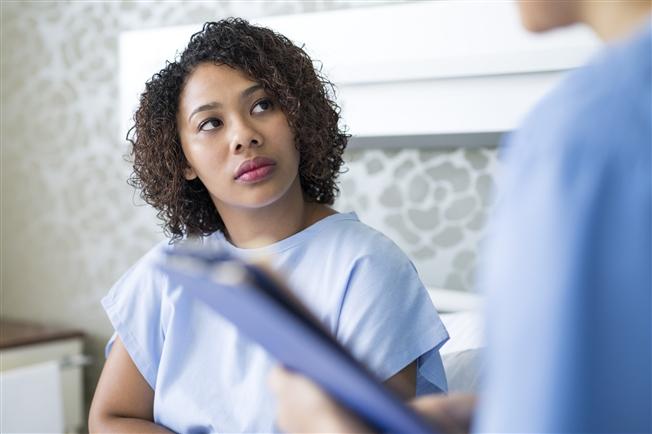Had enough of female bladder control problems? Speak up

You may not be discussing them with your best friend, but bladder issues such as stress incontinence, urge incontinence, and overactive bladder are extremely common. In fact, bladder problems affect up to 50 percent of women at some point in their lives.
For many women, these issues begin with childbirth and the natural stretching of the pelvic floor muscles that support the bladder, bowel and womb. For others, problems with urinary incontinence develop after menopause as estrogen levels dip and the urethral lining thins. This affects conscious control over urinary flow and the urethra's ability to close properly. Bladder conditions can also be associated with diseases such as diabetes, obesity or multiple sclerosis.
Women's bladder leakage affects quality of life
For some women, bladder problems can take a serious toll on quality of life. Because of incontinence, they might avoid certain activities and social situations, even laughter itself, afraid of what might happen in public.
"Unfortunately, women tend to suffer in silence for far too long," says urogynecologist Marc R. Toglia, MD, system chief of female pelvic medicine at Main Line Health where specialists offer treatment options from noninvasive therapies to the most advanced surgical techniques. "Bladder conditions are common and nothing to be embarrassed about. Not to mention female incontinence treatment today is completely different and much more effective than just a generation ago."
Common bladder problems and bladder treatments
Not all cases of urinary incontinence are the same. One type is called stress incontinence — leaking urine during exercise, sneezing, coughing or laughing. This results from loss of support of the urethra, the muscular tube that serves as the outlet valve to the bladder. The primary surgical treatment is known as a TVT (tension-free vaginal tape) sling.
"During this short, outpatient procedure, the surgeon inserts a thin synthetic sling to stabilize the urethra and reduce leakage," explains Dr. Toglia, the first surgeon in the Philadelphia suburbs to perform this procedure at Riddle Hospital in 1999.
You may also benefit from bladder retraining for stress incontinence, which may include pelvic floor muscle rehabilitation and biofeedback. For women with pelvic organ prolapse, a pessary, which is a small, removable silicone device that supports bladder, rectum and anus, may be helpful.
Another type of incontinence is called urge incontinence, or overactive bladder (OAB).
Women with this condition have excessive, frequent urination or a strong urge to urinate, and may leak if they can't get to the bathroom fast enough. In many cases, OAB can be treated with fluid and dietary management, bladder retraining, and pelvic muscle exercise. Medications may be needed as well.
Treatment for female incontinence may also include:
- Electrical stimulation therapy
- Botox for urinary incontinence
- Sacral neuromodulation therapy
- Surgical repair of bladder
- Prolapsed bladder surgery
While you may have gotten used to the little leaks and the inconvenience of incontinence, you don't have to accept it as a way of life. Don't be afraid to start the conversation with a Main Line Health urogynecologist or urologist.
"Deciding to do something about it is a good start," adds Darlene Gaynor-Krupnick, DO, a urologist who specializes in female urology at Lankenau Medical Center, also a part of Main Line Health. She explains that every patient receives a comprehensive work-up that may involve tests such as urinalysis, cystoscopy (in which a scope is used to look into the bladder), or a urodynamics test, which is similar to an EKG of the bladder — in order to understand the cause of the bladder problem and for her to develop an appropriate bladder treatment.
Most surgical and nonsurgical bladder treatments are accompanied by lifestyle and dietary changes as well as pelvic floor exercises.
Most surgical and nonsurgical bladder treatments are accompanied by lifestyle and dietary changes as well as pelvic floor exercises. Through our Pelvic Floor Rehabilitation Program at Bryn Mawr Rehab Hospital, our team of pelvic floor physical therapists treats patients for pelvic floor disorders at our Collegeville, Exton Square and Wynnewood locations.
Main Line Health serves patients at hospitals and health centers throughout the western suburbs of Philadelphia. To schedule an appointment with a specialist at Main Line Health, call 1.866.CALL.MLH (225.5654).
 Content you want, delivered to your inbox
Content you want, delivered to your inbox
Want to get the latest health and wellness articles delivered right to your inbox?
Subscribe to the Well Ahead Newsletter.
